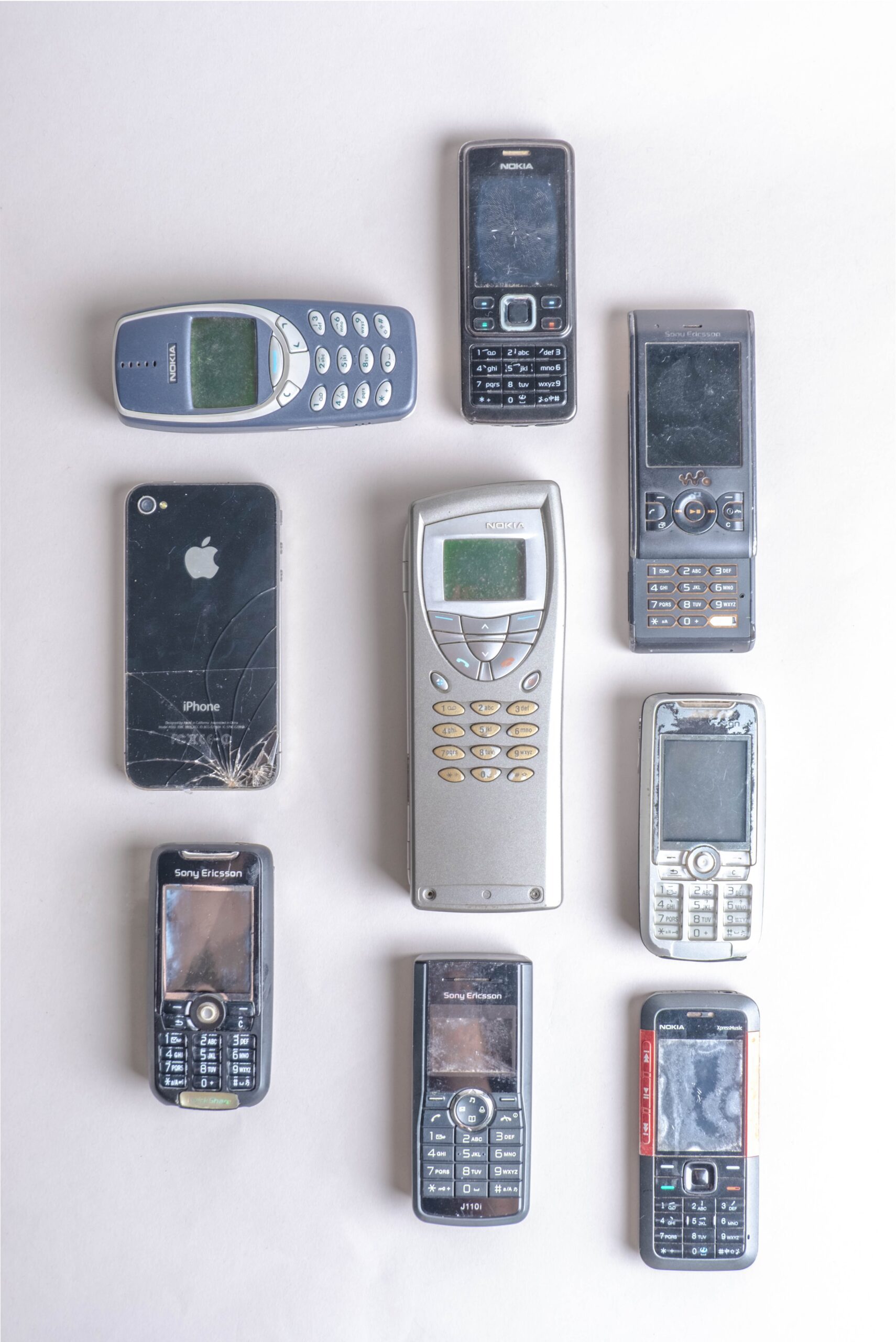What were the first Mobiles used?
The first mobile phones were used in the early 1980s. The first commercially available mobile phone was made by Motorola, which was mass produced and released in 1973. These sorts of phones are called Zero Generation mobiles. The first generation of mobile phones was about the size of a brick, making it impractical for most people to carry around.
Specifically, The DynaTAC was the first phone used on a commercial basis, followed by a series of other early mobile phones, including the Nokia Mobira Senator and the Motorola StarTAC. These phones were still quite bulky and expensive, and they had limited battery life and call quality compared to modern smartphones.
It wasn’t until the 1990s that mobile phones began to become more widespread and affordable, as technology improved and mobile networks expanded. Today, in 2023, mobile phones are ubiquitous and come in a wide range of shapes, sizes, and capabilities.
First 5 Mobiles Made:
- 1985: Motorola Dynatac 8000X
- 1992: Nokia 1011
- 1996: Motorola StarTAC
- 1997: The Hagenuk GlobalHandy
- 1998: Siemens S10
Old phone image – New phone image
How have costs changed for Business Mobiles?
1985 the mobile phone price was £1650, for the Motorola Dynatac 8000X, by today’s standards that is extremely expensive, when you can get a new smartphone for around £600.
Going through the 90s and into the 00s prices for a mobile phone dropped dramatically, with the average price being £200, if you’re investing in the classic Nokia 3310.
Looking at budget business mobile phones in 2005 through to modern day, you can pick up a mobile phone for an average price of £80 and under.
Looking at smartphones from 2005 onwards prices differ, in 2008 an Apple Iphone would cost you around £400 and now, in 2023 a brand new iphone would cost upward of £1,000.
Costs Of Phones Throughout the Years
- Motorola Dynatac (1985): £1650
- Nokia 3310 (2000): £220
- iPhone 3G (2008): £400
- Samsung Galaxy (2011): £750
- iPhone X (2017): £1000
- Note 20 Ultra (2020): £1300
- iPhone 14 Pro (2023): £1100
What are the best mobiles to use in 2023 and beyond?
The best business mobiles to use today should be reliable, secure, and efficient to help you stay productive and connected on the go. Here are some of the top business mobiles currently available on the market:
- iPhone 14 Pro Max: Apple’s latest flagship device offers a powerful A15 Bionic chip, a stunning OLED display, and an excellent camera system that’s ideal for business users who need to take high-quality photos and videos.
- Samsung Galaxy S21 Ultra: This top-of-the-line Android device features a large, high-resolution display, a powerful processor, and a versatile camera system that’s perfect for video conferencing and taking detailed photos.
- Google Pixel 7 Pro: Google’s latest device is a great option for business users who need a reliable and secure phone with an excellent camera system and long battery life.
- OnePlus 9 Pro: This device offers a fast and smooth performance, a high-quality camera system, and 5G connectivity, making it a great option for business users who need to stay connected on the go.
- BlackBerry KEY2: For users who prefer a physical keyboard, the BlackBerry KEY2 offers a sleek and compact design, a responsive keyboard, and strong security features, making it a great option for business users who value productivity and security.
Should your business consider Business Mobile deals company wide?
Business mobiles offer several benefits for professionals, organisations and businesses, including:
- Increased productivity: Business mobiles allow professionals to stay connected and productive while on the go. They can access important emails, documents, and files from anywhere, allowing them to get work done even when they are away from their desk, although this can all be done on personal mobiles, the below are some really important reasons to consider business mobile deals.
- Better communication: Business mobiles offer a variety of communication tools such as email, messaging, and video conferencing, which help professionals to stay in touch with colleagues, clients, and partners, keeping professional and personal mobiles separate.
- Enhanced security: Business mobiles come with advanced security features such as biometric authentication, encryption, and remote wipe, which help protect sensitive data and prevent unauthorised access.
- Improved collaboration: Business mobiles make it easier for teams to collaborate by providing access to shared files and documents, as well as real-time communication tools all in one place, with personal mobiles allowing this also , some business owners would prefer all these details to be kept in one place.
- Cost savings: Business mobiles can help organisations and businesses save money by reducing the need for expensive office equipment and travel expenses, while also increasing efficiency and productivity, deals on mobiles can also save the business money depending on the size of the business.
Most popular business mobiles on the market
There are several popular business mobiles on the market today, each with their own set of features and benefits. Here are some of the most popular business mobiles on the market:
- Apple iPhone 13/14: Apple’s latest flagship device offers a powerful A15 Bionic chip, a stunning OLED display, and an excellent camera system that’s ideal for business users who need to take high-quality photos and videos.
- Samsung Galaxy S23 Ultra: This top-of-the-line Android device features a large, high-resolution display, a powerful processor, and a versatile camera system that’s perfect for video conferencing and taking detailed photos.
- Google Pixel 7 Pro: Google’s latest device is a great option for business users who need a reliable and secure phone with an excellent camera system and long battery life.
- OnePlus 11 5G: This device offers a fast and smooth performance, a high-quality camera system, and 5G connectivity, making it a great option for business users who need to stay connected on the go.
- BlackBerry KEY2 LE: For users who prefer a physical keyboard, the BlackBerry KEY2 LE offers a sleek and compact design, a responsive keyboard, and strong security features, making it a great option for business users who value productivity and security.
- Microsoft Surface Duo 2: This dual-screen Android device offers a unique design and excellent multitasking capabilities, making it a great option for professionals who need to work on multiple apps and documents at the same time.





